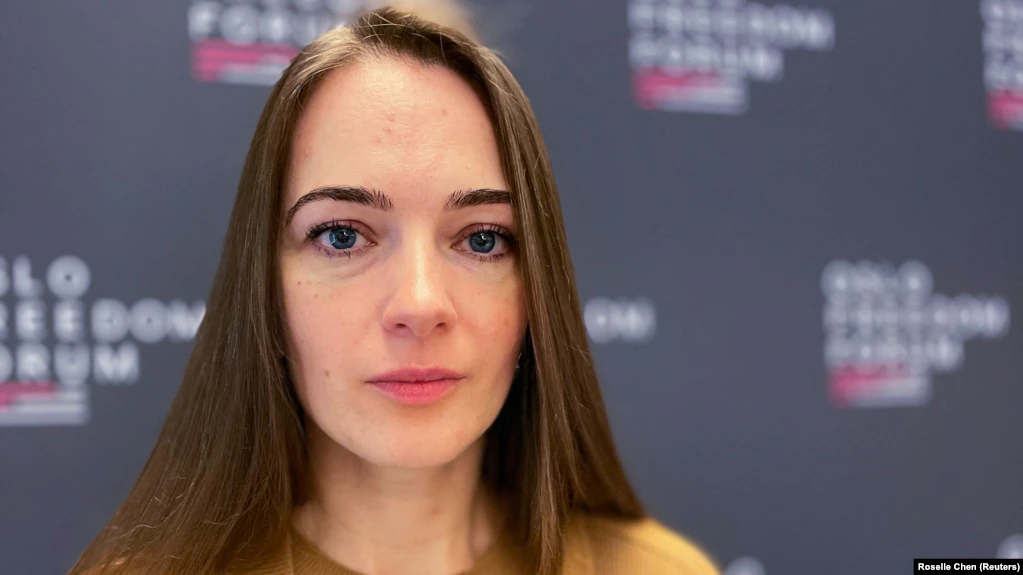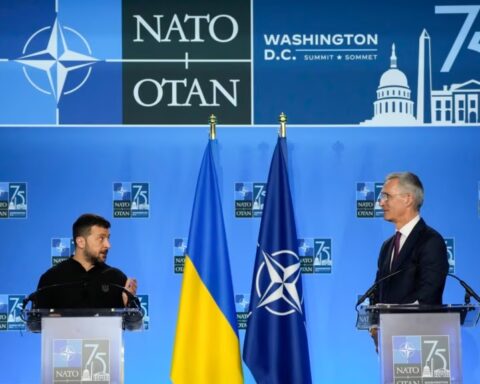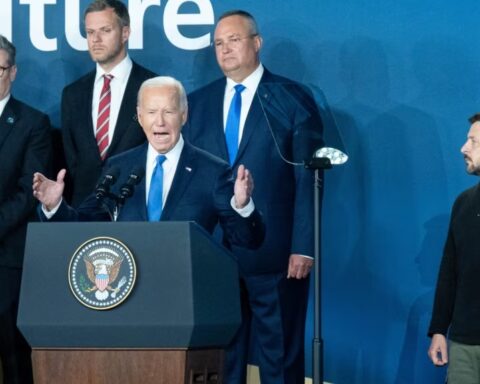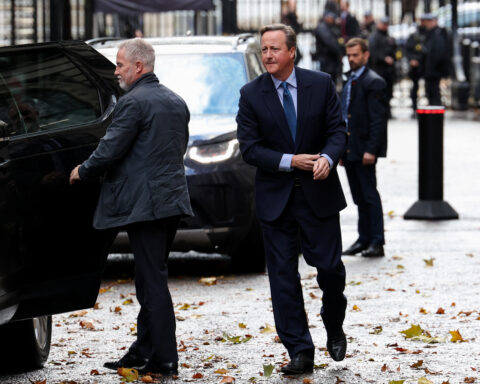KYIV — For years the Kyiv-based Center for Civil Liberties has been documenting war crimes as part of its mission to solidify democracy in Ukraine. Now, says its director on the eve of receiving the 2022 Nobel Peace Prize, it is documenting “unprecedented” pain.
Oleksandra Matviychuk told in an interview on December 9, a day before the 2022 Nobel Peace Prize award ceremony in Oslo, that as her group collects evidence of an “unprecedented number” of Russian war crimes committed since Moscow sent its troops across the border in late February, the true cost of the war is what is being discovered.
Founded in 2007, the Center for Civil Liberties was chosen along with the Russian human rights group Memorial and jailed Belarusian activist Ales Byalyatski as the winners of the 2022 Nobel Peace Prize for its actions that “demonstrate the significance of civil society for peace and democracy.”
“I always say we are documenting not just violations of the Geneva and Hague conventions; we are documenting human pain. Because we have faced an unprecedented amount of human pain.
“The pain people feel when Russian troops target churches, residential buildings, hospitals, kindergartens; when they carry out forced deportations, attack evacuation routes; when the system of filtration camps is being operated; when murders, rapes, torture, and other crimes against the civilian population are committed on occupied territories. Our life has changed a lot. We are now working completely with this pain,” Matviychuk said.
WATCH: Committing war crimes has become an integral part of how Moscow wages war and we shouldn’t wait to bring alleged Russian perpetrators to justice, argues Oleksandra Matviychuk.
Russia has repeatedly denied targeting civilian infrastructure in Ukraine.
But mounting evidence to the contrary has prompted the International Criminal Court and other agencies to launch investigations into what U.S. Ambassador for Global Criminal Justice Beth Van Schaack has called “systemic war crimes committed in every region where Russia’s forces have been deployed.”
She noted that Ukraine also needs to continue to comply with its international obligations, adding, however, that the scale and number of war crimes accusations against Russian forces in Ukraine was “enormous compared to the allegations against Ukrainian forces.”
Matviychuk said her team is working, along with its partners, on a comprehensive strategy for international justice, including the creation of an international tribunal for Russian war criminals to help ease the work of international entities involved in outlining structures to prosecute war criminals once the war in Ukraine is over.
“We have been documenting war crimes for eight years since Russia began its occupation of Crimea, Luhansk and Donetsk regions, especially focusing on illegal detentions, torture, sexual violence, killing of civilians, as well as political persecution and imprisonment of people on occupied territories,” she said. Pro-Russian separatists in Donetsk and Luhansk declared independence after Russia illegally annexed Crimea in March 2014.

“And during all these eight years we have sent dozens of reports to the UN, OSCE, Council of Europe, and European Parliament, but they didn’t listen to us,” Matviychuk said, noting that the ongoing invasion has changed the international community’s understanding of developments in Ukraine and its territories occupied by Russia.
Matviychuk said peace cannot be assured without justice, with the activities of her group and its partners “becoming the basis on which future verdicts for [Russian President Vladimir] Putin…and other war criminals will be based on.”
“We are being supported [by the international community] not because the world was shocked by the Russian aggression but because Ukraine is showing resistance,” she said. “And one who resists, bravely fights for his liberty, arouses sympathy. We certainly can rely on the people in different countries, including those whose governments aren’t helping us as proactively as we would like.”
“This is not a war between two nations, this is a war between two systems — authoritarianism and democracy,” Matviychuk said.





